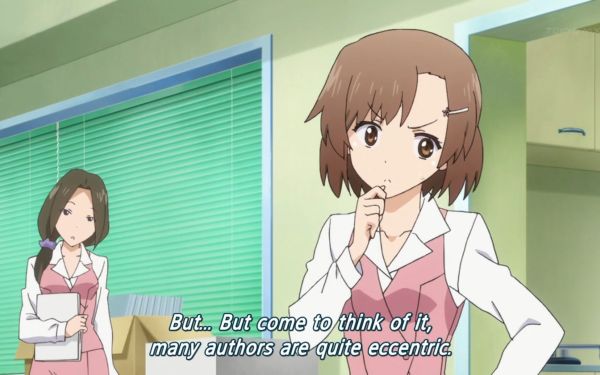
Come to think of it, many authors are quite eccentric. Even so, I may still be the only one writing with dice. I hope to change that. If more people learned to write, I might not have to write the novels I want to read myself. I could just buy them for a few dollar on Amazon.
My last couple entries have been about writing with dice. You may think that writing is about inspiration rather than perspiration, and I assume this is true for Holy Scripture, and perhaps to some degree for a few other profound, world-changing works of timeless beauty. But for the most part, writing is an office job where you have to show up, put in some semblance of mental activity, know your tools and build your skills. The current string of entries is about some quite unusual tools of the trade: Ordinary 6-sided dice.
I have written a bit over 100 000 words on book 2 in the “Semi-demigods” series, the series where I practice my “writing with dice” technique. This book describes high school (three years) for one of the supernatural characters. I am happy with the improvement I made from book 1, but there are still some things I may fine-tune in the next story.
The series is coming-of-age stories about part-supernatural kids, in the same genre as Smallville (the TV and book series), but not very similar apart from the genre. The best part of Smallville, in my opinion, was when Clark Kent discovered another superpower. But unfortunately this experience was fairly brief. He took some days to control his X-ray vision and heat vision, but generally his powers emerged at more or less full strength and he usually could control them easily. My approach is very different: A slow creeping change, a very slowly rising tide of power. Perhaps too slowly and too broad, I think now.
***
Due to a faulty implementation of two related abilities from the GURPS Psionics set, my character ended up with two powers that were way above most of the others, in this case telekinesis and especially flight. Rather than fix it partway through, I wrote it into the story, which worked out pretty well. There was also another power that was ahead of the pack, namely mind reading. But this was because it was favored by the dice. In the long run, the dice will even out, but that turns out to be a very long run. In the first book, the dice favored healing, and I wrote that into the story as well, but I don’t know why it happened.
What I do think is that the story benefited from a couple powers emerging earlier than the rest, rather than all of them being useless and then all of them being over the top. So I am thinking that for Book 3, I am going to implement a Matthew amplifier: He who has shall be given and shall have abundance. I am still pondering how to implement it, but I am thinking of marking the top 5 skills at some point, possible the first 5 to be rolled in the first place, and giving them bonus points. Like every third round will be reserved for the Primary Skills, or nearly so. The numbers 1 to 5 will correspond to the 5 Primary Skills, while a 6 passes the turn to the stat pool with a new roll.
Obviously this might be different depending on your genre, so I am not going to go on and on about the details.
Another tool-related note: I use a spreadsheet to keep track of the various powers and skills. For each time they change, I also write a [note] in my writing program (yWriter 5). This lets me reconstruct the power set at any particular time in the story, but it would be a lot of work to do that for any random scene. So I am thinking of extracting the bare-bones stats from the spreadsheet and posting the status at the start of each chapter (not part of the actual text, obviously, but perhaps in the internal chapter description). I tend to write very bare-bones and I think this could make it easier to expand on the story later. It will let me see at a glance what the stats were at the time.
Again, this is kind of specialized for supernatural coming-of-age stories. In a romance novel you might track the relationship between the various characters at different times, perhaps on a scale from -100 to +100. In a mystery novel you would keep a map of who knows what and believes what at each stage. But for now I am writing this, and these are my tools.
Plot ideas, on the other hand, are like cats: Once you have two or three, you will soon wake up with the house full of them. Going from dream to story is the hard work, and tools matter.
